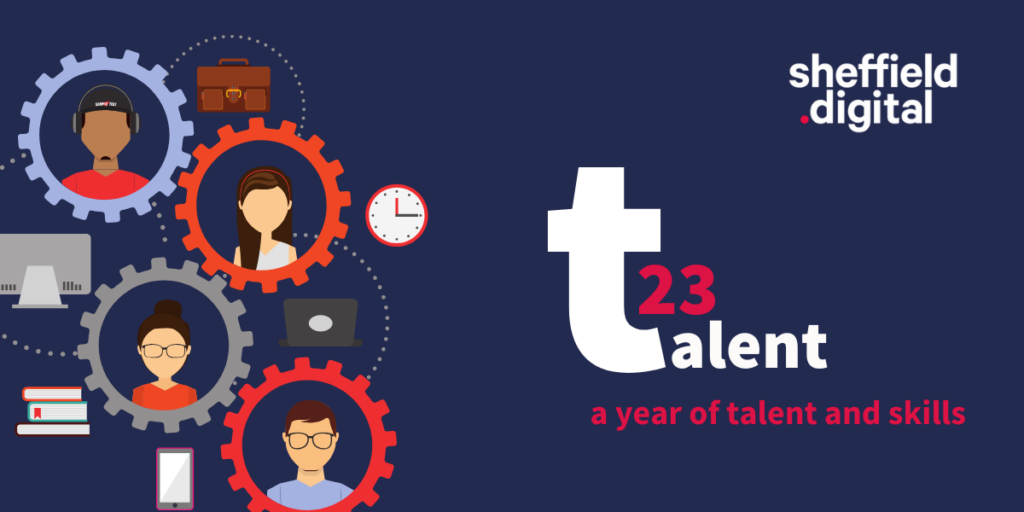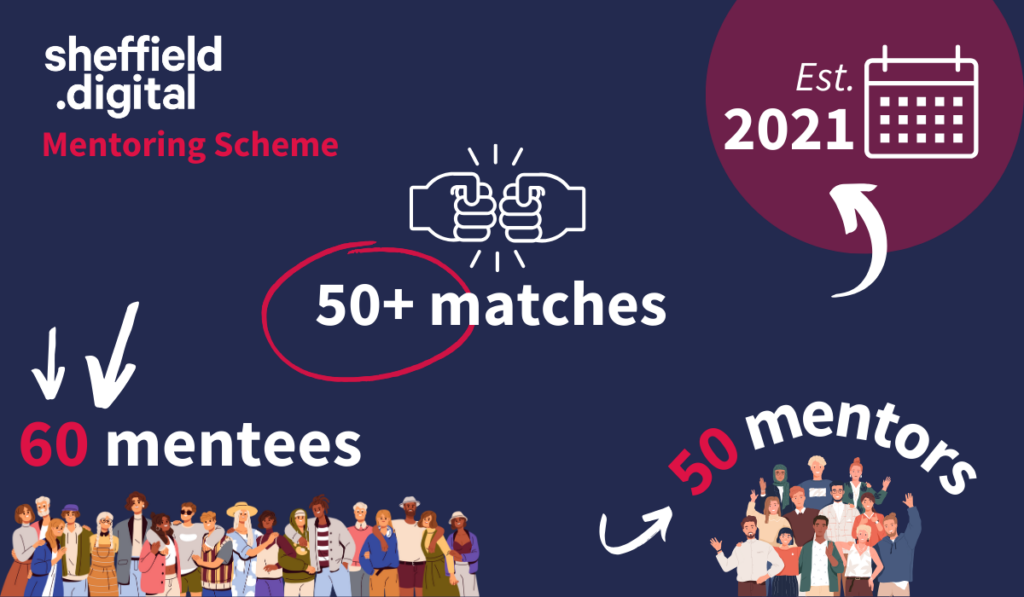
In March of last year we announced a plan to make 2023 a “year of talent and skills”, with a focus on activities to help address the talent and skills gap for the region’s tech businesses. For 12 months we had an unrelenting focus on this area; carrying out research, increasing access to information and existing systems and infrastructure, and loudly amplifying the great work of others. We put out calls for volunteers, best practice and opinions, and the community has responded. So, what impact has Talent23 (T23) delivered? And what’s next?
A busy year of activity
When our team sat down to assess T23 earlier this year, we weren’t really sure where to start. We knew we’d never solve the talent and skills gap, not least in the space of twelve months, but we could all agree that the campaign felt successful.
There is a shared sense that change is happening and we have anecdotal evidence that our focus on this topic has encouraged people to re-examine their recruitment and upskilling practices. The collaborative efforts of our members and partners are proving to be part of the solution to a complex and long term problem. Together, we’re seeing a way forward and we would like to thank everyone who has contributed to this campaign so far.
Here are the activities we did under the banner of T23:
Showcasing best practice
We shared some brilliant stories that showcased partnerships between businesses and different education / training organisations in the city.
- Recruiting from Developer Bootcamps – Hive IT has recruited two members of its team from developer bootcamps, so they shared some useful insight and advice about the process. Plus, we heard from Ben Atha, founder of The Developer Academy who explained how this type of training works.
- Helping T-Level students kick start their careers – The Sheffield College and Verticode told us why industry placements are helping to keep talented young people in the city’s tech ecosystem.
- Opening doors for refugees – BJSS shared their experience of supporting Voluntary Action Sheffield’s New Beginnings Project, helping refugees to develop their digital skills and prepare to apply for jobs in our tech sector.
- Connecting employers to the future workforce – See it Be it (SIBI) in Sheffield demystifies the tech sector by facilitating meaningful employer engagement in schools. The Curve told us about the work they are doing with local schools through SIBI.
Sharing different career paths into tech
We asked the question ‘How did you get here?’ to people working in Sheffield’s digital industries, ranging from software apprentices, to startup founders.
The majority of these interviews are on our podcast but we also shared stories on the blog and over on our YouTube channel.
Creating a benchmark
During September and October of 2023, we conducted our first digital skills audit and this gave us the first piece of data focussed specifically on the skills needs of our region’s digital and tech businesses. Just under 50 companies responded and while this is a fairly small sample, it was broadly representative of the region’s digital and tech sector.
The results gave us evidence to back up what we really already knew; however, the real value will only come after we’ve done the research again – now we have a benchmark that we can measure change against. You can read the report here.
Helping people to develop careers in tech
The Sheffield Digital Mentoring Scheme goes hand in hand with T23. It is there to help people progress their careers in the digital industries, and to open up the industries to more people who may have felt excluded.
Since launching back in 2021, over 60 people have signed up as mentees and more than 50 have volunteered on the scheme as mentors. We’ve seen mentees take the plunge into new careers, develop ideas into successful startups, and develop skills, confidence and clarity around the direction they’re heading in.
The scheme continues to go from strength to strength and we have regularly profiled mentors and mentees on LinkedIn to promote the scheme and demonstrate the help that is out there for people looking to develop a career in tech.

Widely promoting opportunities in the region’s digital industries
The Sheffield Digital Jobs Board was used by over 50 companies during T23 to share almost 230 roles in the region’s digital industries. Our members’ roles are all advertised in the Sheffield Digital newsletter, received by more than 1000 subscribers and we promote roles on LinkedIn, X and to our Slack community. First-rate opportunities exist right here in South Yorkshire and we are committed to promoting them as widely as possible in order to attract the best people to our digital industries.
Has Talent23 made a difference?
As a direct result of the past 12 months’ T23 activity, we have seen:
- Greater engagement between local tech employers and schools and colleges. ‘See it Be it’ has joined our Slack community, creating a dedicated channel where they can share volunteering opportunities, and members of the team have been a regular presence at our events, such as the AGM.
The same goes for The Sheffield College’s T-Level team, who are meeting more tech leaders face to face at our Senior Leaders Dinners. Sometimes, just getting people in a room together can make all the difference. - After we published the Sheffield Digital Skills Audit Report, our Director, Mel Kanarek – who is the driving force behind our work in this area – was asked to contribute to discussions relating to the Sheffield Growth Plan, the South Yorkshire Skills Advisory Board and Sheffield City Council’s plans around bootcamps. This was a brilliant opportunity to represent Sheffield’s tech sector at the decision-making level and make sure that the views, experiences, and needs of employers are heard in the digital skills debate and throughout policy making.
- T23 gave us a platform to make what companies are already doing visible. Braveand, Paper and Nimble are just some of the companies who are working to make careers in tech more accessible through engagement with schools and colleges, and interviews with employees to share their routes into tech. We’ve shared this activity, turning abstract ideas into tangible examples that others can follow.
- For our team, undertaking T23 has given a sharp focus for our activity and our messaging, helping us to deliver greater impact and specific support to our community.
It’s a challenge to do something that’s hard to measure; effective change in this area will not happen overnight (or over a year), but if we don’t attempt it, nothing will change. Crucially, the small steps we’re seeing taken in the community show us that our work can be a positive catalyst for change.
What next?
There is plenty more to be done and T23 has given us some good foundations to continue addressing the talent and skills gap that exists in the region’s digital industries.
The direction in which we take this work will be guided by our new Members Board, but some ideas we have include building on the progress made in linking the sector with schools and colleges, focussing more closely on universities. This may involve exploring student and graduate placements, and helping our members to get involved in university careers fairs, so that talented students know what opportunities exist in Sheffield, and can meet face to face with employers.
Sheffield’s tech startup scene is an exciting place to be right now, with lots of young companies either setting up here or moving into the city to be part of a connected, supportive and ambitious ecosystem. We’d like to explore how this might impact the talent and skills gap. We’re confident that this new wave of diverse entrepreneurial founders could help to attract, inspire and retain tech talent in our city.
So, for now, watch this space and keep telling us your stories – we want to hear what you are doing to help tackle the talent and skills gap, what has worked well and not so well – we can all learn from each other’s experiences.